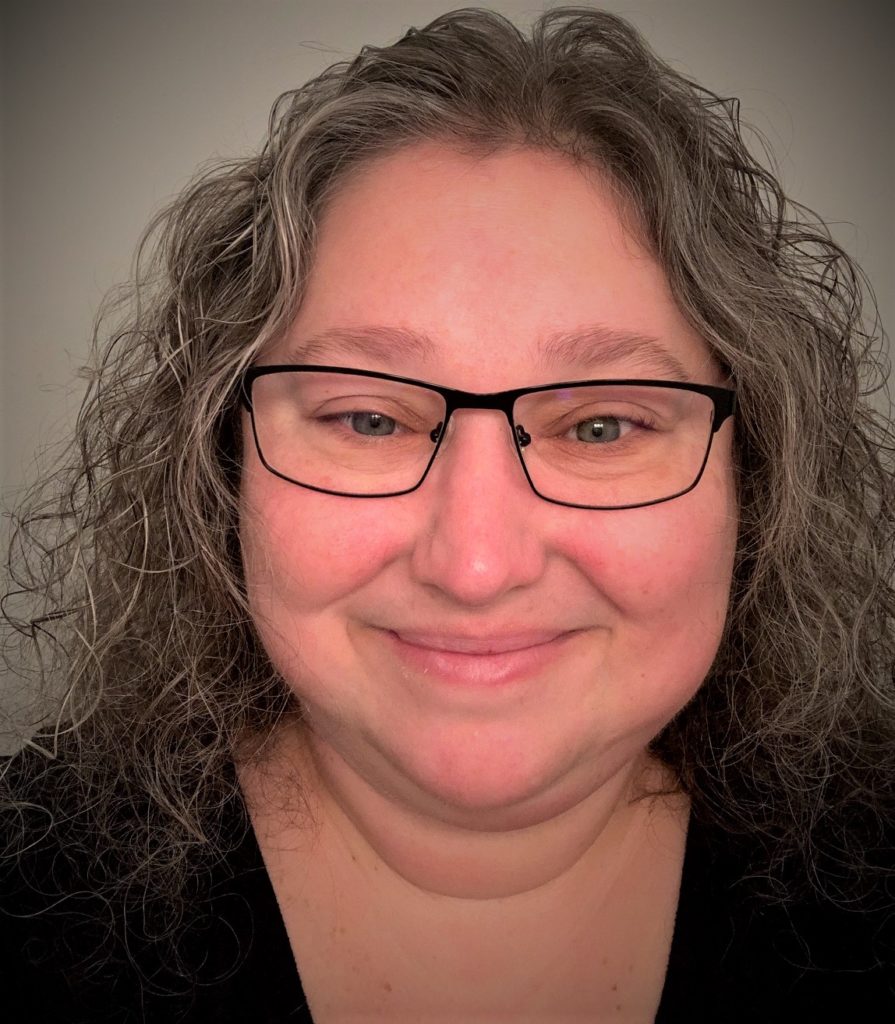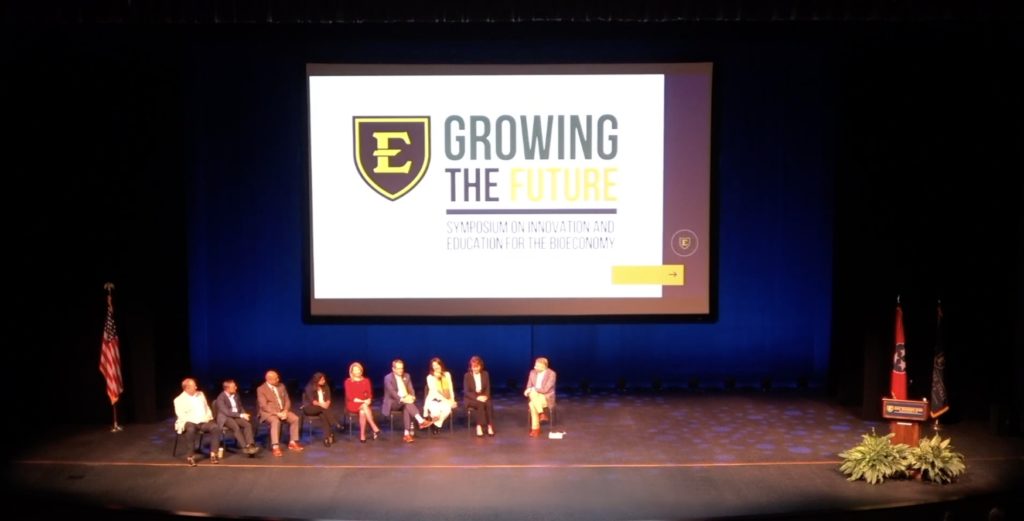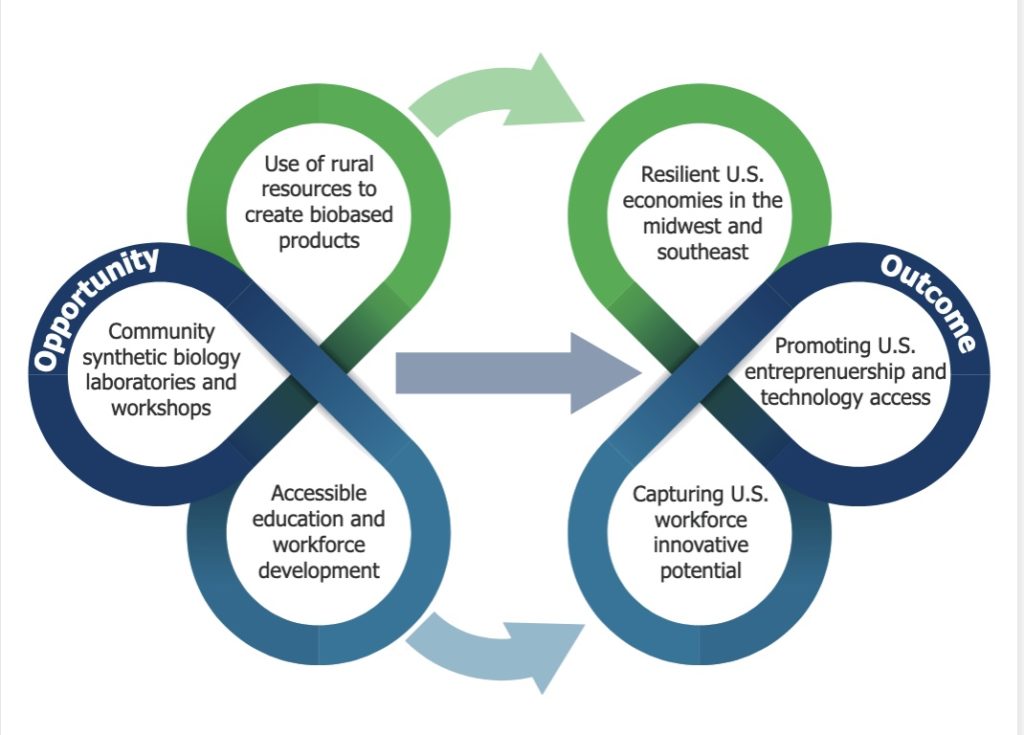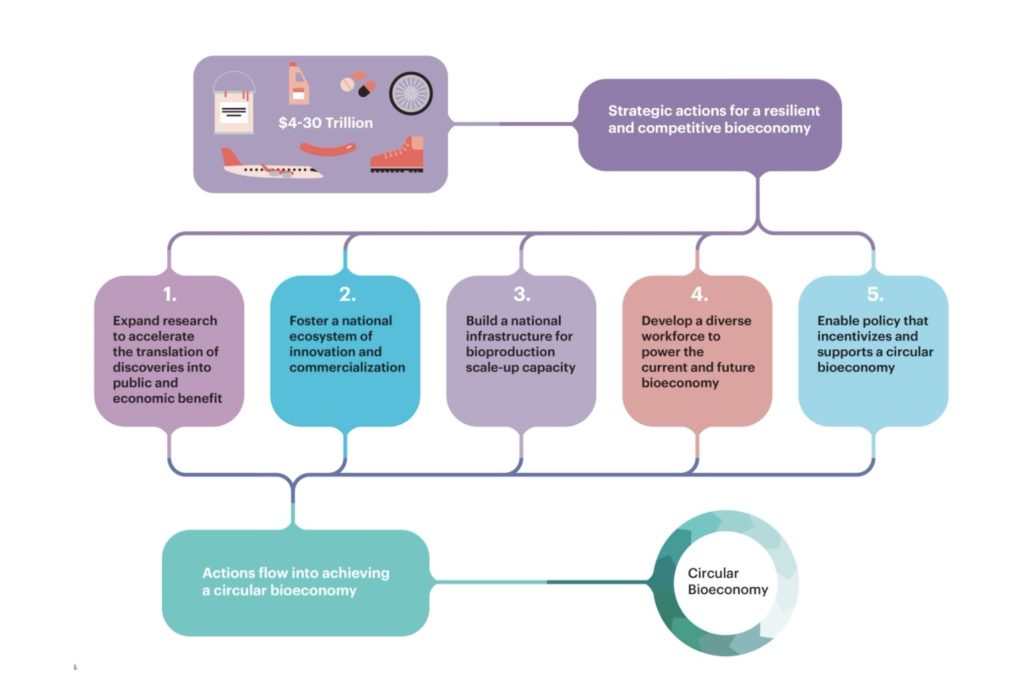BioBuilder is thrilled to announce the award of a two-year grant from Schmidt Futures to help us expand synthetic biology education and grow the bioeconomy in underserved areas of the U.S.!
BioBuilder will use the capacity-building grant to develop a template that can be adapted and strategically applied to replicate the workforce pipeline BioBuilder has fostered in the rural Appalachia area of East Tennessee. Our focus is to help bring diversity into the bioeconomy, focusing on strategies for inclusion of urban, tribal, and agricultural communities.
Here’s a sneak-peek at our three-step strategy for making this happen.
1. Develop a template for building a regional appetite for the bioeconomy
Since 2018, BioBuilder has been collaborating with decision-makers in Kingsport, Tennessee, to leverage their regional strengths and build a world-class bioeconomy in the southeastern U.S. Our approach has been to first build the skills and confidence of local teachers. The teachers’ expanded capacity then leads to school-based programs that foster student interest and skills.
Subsequent introduction of BioBuilder’s school-to-work programs recruits university and company participation which, over time, opens more workforce and higher education placements.
What’s needed to create an accurate and effective template is the careful examination and thorough documentation of our pilot work in East Tennessee. The result will be a data-enabled operating model to serve as a playbook for other regions and settings.


2. Identify specific regions where the bioeconomy could be expanded
The goal here is to identify under-served regions of the country, their strengths and needs, and community partners that will support our efforts. We are assisted in this task by recent work from the Engineering Biology Research Consortium. Their research findings provide excellent information on areas in the U.S. that are “Education Ready” – ripe for new educational efforts that promote diversity in the bioeconomy workforce. Their research also identified “Shovel Ready” communities – areas that have available biomass and existing biomanufacturing facilities. Overlaying these maps provides a guide to locations in which academic and investment opportunities in the bioeconomy are most likely to take off. Our playbook will also guide efforts to identify and engage local partnerships – “Support Ready” communities you might say!
Albert W. Hinman and Douglas C. Friedman. Actions to Enable an Equitable and Innovative U.S. Bioeconomy. Engineering Biology Research Consortium. 2022. https://doi.org/10.25498/E4X59D
Figure 1. Pg1.
3. Design a strategic plan for building a nation-wide network of “Lab-raries” as points of entry for local bioeconomies
Inspired by steel magnate Andrew Carnegie’s historic formula that established the U.S. “free-to-the-people” public library system, we envision a public “lab-rary” system nationwide. We will carefully design an implementation plan that can be readily adapted to fit the specific needs of each distinct region to pave the way for school-to-college and school-to-career opportunities for residents. Doing so will bring good jobs to new regions and diversity into the synthetic biology industry.
When the Schmidt Futures Task Force on Synthetic Biology and the Bioeconomy described seeding the next wave of innovation, a handful of necessary actions were identified, all of which flow into a circular bioeconomy (diagram below). Developing a diverse workforce is one of the essential components.
Thanks to BioBuilder’s new support, momentum is building to realize this future.
Hodgson, A., Alper, J., Maxon, M.E. 2022. The U.S. Bioeconomy: Charting a Course for a Resilient and Competitive Future. New York, New York: Schmidt Futures. https://doi.org/10.55879/d2hrs7zwc
Figure ES1. Pg vii.
The Future is Growing Brighter!
BioBuilder is eager to invite a diverse pool of problem-solvers to become part of the bioeconomy. The success of these endeavors over the next decade will foster the next generation of innovators and help make their dreams a reality!
Device Dude
We are delighted to introduce Kateri Atkins, our new Director of Operations. Kateri has a Bachelor’s degree from Old Dominion University majoring in biology with a minor in chemistry. She has worked as a scientist for more than 20 years. Most recently she was the Head of U.S. Protein Operations with UCB Biosciences, a global biopharma company, where she was responsible for leading their molecular biology and protein production teams. Prior to that she was the Vice President of Operations at Beryllium Discovery where she was responsible for operational and scientific management of core operations.
Kateri has extensive experience in the life sciences, operations and resource management, and leading projects and budgets. She has a talent for being able to create bridges between different organizational groups and lead successful and motivated collaborative teams. A perfect fit for BioBuilder!
Originally from Queens, New York, Kateri has since lived across the U.S. and abroad with her now-retired Navy submariner husband.
Welcome Kateri! We are so happy to have you with us!



